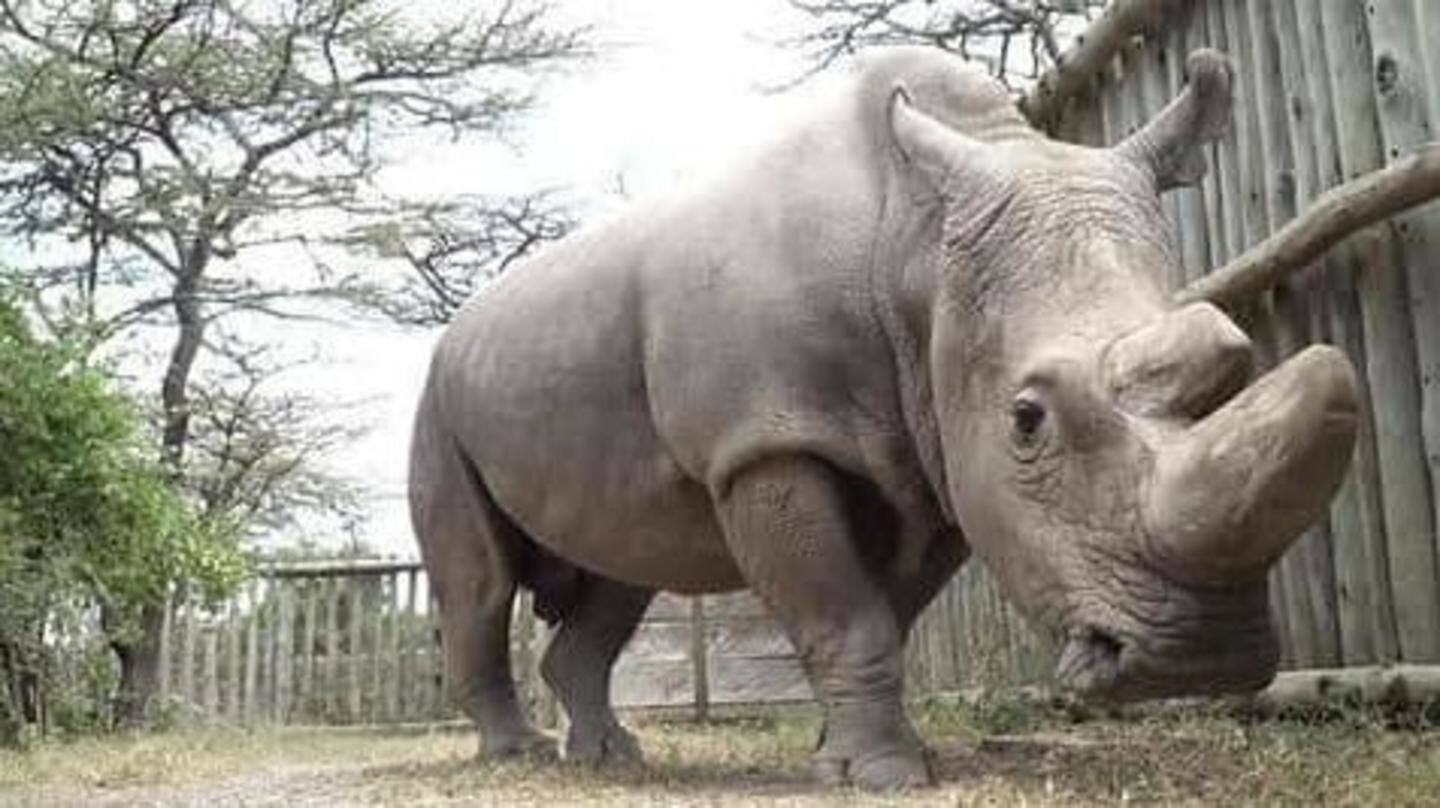
Increasing evidence points towards sixth wave of extinction
What's the story
When the last male northern white rhino, Sudan, was put down earlier this year by its caretakers, the uncomfortable topic of extinction made its way into mainstream news for a brief period of time before being swept under the rug again. Yet, research on the issue continued, and the findings are far from comforting, with increasing evidence pointing towards a sixth wave of extinction.
Do you know?
The five major extinction events faced by the Earth
The Earth has faced five major extinction events - the Ordovician-silurian Extinction 440 million years ago, the Devonian Extinction 365 million years ago, the Permian-triassic Extinction 250 million years ago, the Triassic-jurassic Extinction 210 million years ago, and the Cretaceous-tertiary Extinction 65 million years ago.
Extinction rates
Extinction rates have shot up, worst since dinosaurs died out
Extinction, which has largely been considered a natural process, occurs at a "background" rate of about one to five species going extinct every year. Now, scientists estimate that we're losing species at 1,000 to 10,000 times the natural background rate, making this 'anthropocene' epoch the worst in terms of species die-offs since the dinosaurs went extinct 65 million years ago.
IUCN
IUCN: 26,000 of 93,000 species are vulnerable, critical, or endangered
The latest natural stock-taking report compiled by the International Union for Conservation of Nature (IUCN), which includes reports from thousands of experts around the world, classifies 26,197 out of 93,577 recorded species as vulnerable, critical or endangered. Since last year, six species have already been declared extinct, taking the total to 872. Another 1,700 species are listed as critically endangered, and perhaps, already extinct.
UN estimates
UN reports point towards a lonely future for humankind
Just months back, a UN panel published similar findings. The reports predicted that the Asia-Pacific region would lose 45% of its biodiversity by 2048, while Africa is expected to lose half of its bird and mammal population by 2100. The Americas stand to lose 15% of its flora and fauna by 2050, and 28% of all species in Europe are currently under threat.
Anthropogenic causes
The extinction crisis facing Earth is of our own making
The causes for this massive decline in biodiversity are, unsurprisingly, anthropogenic in nature. With the world getting wealthier and more populated, human needs for food, land, energy, and clean water have increased tremendously thus resulting in deforestation, disappearance of pollution-absorbing mangroves and wetlands, encroachment into animal habitats, rising pollution levels, etc. Adding to the problem are issues of global warming, and consequent climate change.
Artificial selection
Humankind is playing God, revealed another study
In fact, another groundbreaking study revealed that the world's 7.6 billion human population represents only 0.01% of all biomass, but has contributed to 83% of all animal extinctions and around half of all plant extinctions since humankind's advent. Meanwhile, livestock and poultry, which are crucial to humankind, have grown disproportionately, and currently accounts for 60% of all mammals, and 70% of all birds, respectively.
Data
The composition of biomass on Earth
82% of the world's biomass comprises plants, while 13% of Earth's biomass is made up of bacteria. Every other form of life, including humans, fall within the remaining 5%, with humans occupying a measly 0.01%.
Consequences
Why we should be extremely worried
While the extinction of seemingly insignificant forms of life might seem unimportant, the consequences of continued biodiversity loss is potentially catastrophic. Firstly, biodiversity gives resilience to ecosystems in the face of change. Secondly, scientists warn that the loss of biodiversity is a graver threat than climate as it alters the Earth's capacity to provide clear air, fresh water, food, and stable weather systems.
Extinction debate
It's time we take a hard look at our future
Humanity has largely been apathetic towards the issue of extinction, often due to issues of human-biodiversity conflicts (for instance, it's unlikely that the eradication of small pox will be mourned). Yet, given the magnitude of the crisis facing humankind and its implications on our long-term future, it's high time to bring the extinction debate back into mainstream discourse and promote collective action.